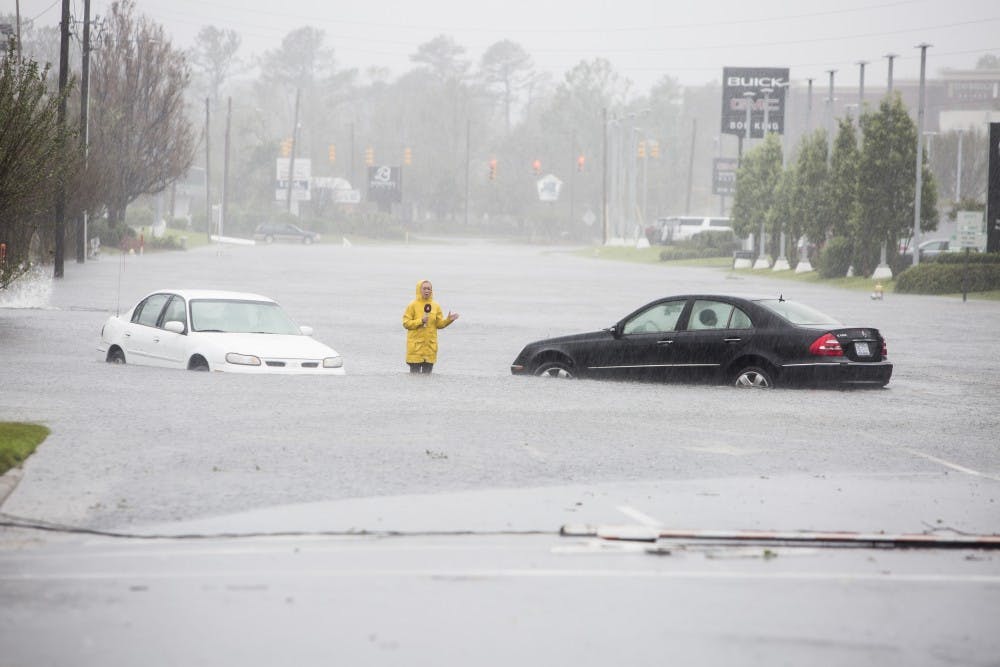UNC has been awarded with with a four-year grant of $319,999 from the National Science Foundation for research and the development of more resilient public water infrastructure in North Carolina.
The grant comes as part of UNC’s inclusion in a larger multi-faceted study, headed by Wayne State University. The initiative hopes to strengthen the infrastructure in areas where both natural and man-made water system disasters are prevalent.
Heading UNC's branch of the study is Jacqueline Gibson, associate professor of environmental sciences and engineering. She and her team will conduct research in Robeson County, North Carolina, to use as a basis to better serve other areas of the state affected by water contamination after Hurricane Florence.
“The idea of the National Science Foundation program that this is being funded under is to promote interaction between critical infrastructure systems," Gibson said. "So, a goal of this is to basically better connect public health systems with drinking water systems so that you can avoid things like the Flint water crisis or water systems going down for long periods of time."
Gibson said large amounts of rainfall and flooding caused by storms like Florence pose a severe threat to privately owned well water systems, especially in more economically deprived areas like Robeson County, where water systems are less maintained. Severe flooding is especially dangerous in areas of high agricultural production because runoff from livestock farms and pesticides used to cultivate crops can end up in people’s water supply.
“The source waters that these systems rely on can become contaminated and overwhelm the treatment facilities," Gibson said. "People who have private wells also face additional risk, as their wells could flood and get contaminated.”
Members of the American Indian Mothers Inc., a not-for-profit organization tailored towards serving the needs of Native Americans and minorities in North Carolina, will work alongside researchers from UNC's Gillings School of Global Public Health to aid in the data collection process.
“They know the science, but we know the community,” said Beverly Collins-Hall, director of American Indian Mothers Inc.
Collins-Hall said she felt blessed to be able to partner with the University to undertake a serious look into the well-being of the water systems in Robeson County, systems that she said had been neglected and under-maintained for years.




